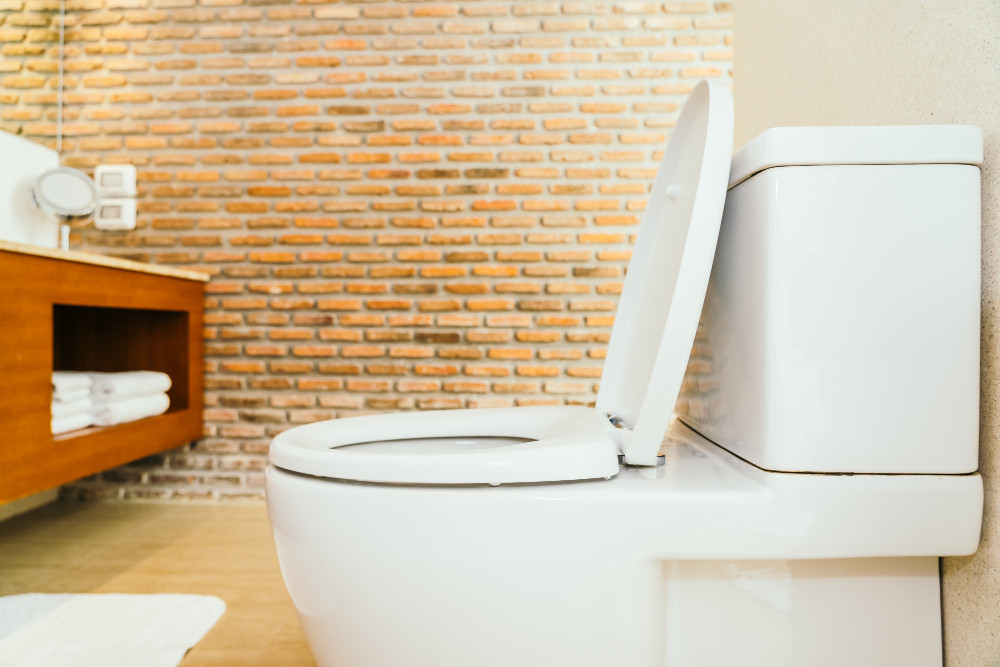Diare dan disentri adalah dua masalah kesehatan pencernaan yang ditandai dengan sakit perut dan tinja yang encer. Diare dan disentri memiliki gejala yang mirip sehingga banyak yang menganggap keduanya adalah masalah kesehatan yang disebabkan oleh penyebab yang sama.
Namun sebenarnya diare dan disentri memiliki penyebab dan gejala yang berbeda. Apa saja perbedaan diare dan disentri? Simak ulasannya berikut ini.
Perbedaan Diare dan Disentri
Diare
Diare adalah kondisi dimana Anda mengalami buang air besar dengan tekstur encer atau berair, hingga lebih dari 3 kali sehari. Kondisi ini umumnya ringan dan dapat hilang dalam beberapa hari. Namun pada kondisi diare yang dibiarkan tanpa penanganan, hal ini bisa memicu dehidrasi dan kekurangan nutrisi.
Diare dapat bersifat akut yang berlangsung selama 1-2 hari. Jenis diare ini merupakan jenis diare paling umum dan dapat sembuh dengan sendirinya. Diare juga dapat bersifat kronis yang berlangsung lebih dari 4 minggu atau sembuh dan timbul dalam jangka waktu lama.
Penyebab utama diare adalah virus yang menginfeksi usus (gastroenteritis), namun diare dapat disebabkan oleh banyak hal, di antaranya:
- Infeksi. Infeksi patogen seperti virus, bakteri, dan parasit dapat menyebabkan infeksi yang menyebabkan diare. Penyebab diare yang paling umum pada orang dewasa adalah norovirus, sedangkan pada anak-anak penyebab paling umum adalah rotavirus.
- Keracunan makanan. Biasanya disebabkan oleh paparan bakteri ketika makan makanan atau minuman yang terkontaminasi.
- Obat-obatan. Konsumsi obat-obatan juga dapat menyebabkan diare. Beberapa obat-obatan yang dapat menyebabkan diare antara lain antibiotik, antasida, obat-obatan perawatan kanker, dan penggunaan obat pencahar.
- Makanan yang mengganggu sistem pencernaan. Pada pengidap intoleransi laktosa, Anda dapat mengalami diare karena tubuh Anda kesulitan mencerna laktosa, kandungan gula dalam susu.
- Penyakit yang memengaruhi usus seperti penyakit Crohn, kolitis ulseratif, dan sindrom iritasi usus besar.
- Operasi pada usus.
Baca Juga: Apa yang Harus Dilakukan Jika Anak Mengalami Diare?
Disentri
Diare dan disentri memiliki gejala yang sama, yaitu tinja yang encer. Pada disentri, diare diikuti dengan lendir atau darah. Penyakit ini lebih sering disebabkan oleh sanitasi yang buruk. Penyebaran disentri dapat dicegah dengan menjaga kebersihan, terutama dengan mencuci tangan menggunakan sabun dan air mengalir.
Jenis disentri yang diderita bergantung pada penyebabnya, yaitu:
- Disentri basiler, merupakan jenis disentri yang paling umum. Disentri jenis ini disebabkan bakteri Shigella, dan banyak disebabkan oleh makan makanan yang terkontaminasi dan menyentuh barang atau permukaan yang terkontaminasi lalu memasukkan tangan ke mulut.
- Disentri amoeba berasal dari parasit yang disebut Entamoeba histolytica. Disentri jenis ini biasa disebabkan oleh kondisi lingkungan dengan sanitasi yang kurang baik.
Baca Juga: Memiliki Gejala yang Mirip, Ini Beda Diare dan Muntaber
Penanganan Diare dan Disentri
Pengobatan disentri basiler umumnya tidak memerlukan penanganan khusus atau obat resep. Infeksi disentri biasanya dapat sembuh dengan sendirinya dalam waktu 4-7 hari. Sedangkan untuk disentri amoeba, dokter dapat memberikan obat untuk mengatasi perkembangan parasit dalam darah. Obat ini dapat dikonsumsi selama 10 hari.
Untuk diare, Anda bisa mengatasi diare di rumah dengan mengonsumsi obat yang dijual bebas. Selain itu, Anda bisa mengonsumsi obat-obatan seperti antibiotik, antiparasit, atau obat-obatan untuk mengatasi kondisi mendasar penyebab diare seperti penyakit radang usus.
Anda juga bisa mengonsumsi makanan yang mengandung probiotik untuk mengatasi diare. Makanan yang mengandung probiotik berfungsi memasukkan bakteri baik ke dalam usus untuk melawan diare.
Penyakit disentri umumnya menular. Untuk menghindari penyebaran, cuci tangan sesering mungkin dengan sabun dan air bersih yang mengalir dan hindari menyiapkan makanan untuk orang lain setidaknya selama 2 hari setelah gejala Anda hilang.
Setelah infeksi hilang, bersihkan rumah Anda dengan baik untuk membunuh kuman termasuk mencuci seprai, handuk, dan pakaian dengan air panas dan disinfeksi dudukan toilet, gagang siram, gagang wastafel, gagang pintu, dan tempat lain yang sering Anda sentuh.
Diare dan disentri memiliki penyebab yang berbeda sehingga membutuhkan penanganan yang berbeda, tergantung penyebabnya. Jika Anda memiliki pertanyaan seputar diare dan disentri, sebaiknya periksakan ke dokter atau manfaatkan fitur konsultasi yang terdapat pada aplikasi Ai Care.
Mau tahu informasi seputar penyakit lainnya? Cek di sini, ya!
- dr Nadia Opmalina
Cleveland Clinic. (2023). Diarrhea. Available from: https://my.clevelandclinic.org/health/diseases/4108-diarrhea
Medicine Net. What Is the Difference Between Diarrhea and Dysentery?. Available from: https://www.medicinenet.com/difference_between_diarrhea_and_dysentery/article.htm
Buff, S. (2024). What Is Dysentery and How Is It Treated?. Available from: https://www.healthline.com/health/digestive-health/dysentery
Felman, A. (2023). What is dysentery?. Available from: https://www.medicalnewstoday.com/articles/171193#symptoms
Watson, S. (2022). Dysentery. Available from: https://www.webmd.com/digestive-disorders/what-is-dysentery












